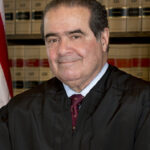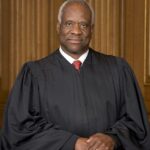JUSTICE O'CONNOR delivered the opinion of the Court. The Age Discrimination in Employment Act of 1967 (ADEA or Act), 81 Stat. 602, as amended, 29 U. S. C. § 621et seq.(1994 ed. and Supp. III), makes it unlawful for an employer, including a State, "to fail or refuse to hire or to discharge any individual or otherwise discriminate against any individual… because of such individual's age." 29 U. S. C. § 623(a)(1). In these cases, three sets of plaintiffs filed suit under the Act, seeking money damages for their state employers' alleged discrimination on the basis of age. In each case, the state employer moved to dismiss the suit on the basis of its Eleventh Amendment immunity. The District Court in one case granted the motion to dismiss, while in each of the remaining cases the District Court denied the motion. Appeals in the three cases were consolidated before the Court of Appeals for the Eleventh Circuit, which held that the ADEA does not validly abrogate the States' Eleventh Amendment immunity. In these cases, we are asked to consider whether the ADEA contains a clear
Foley, State Solicitor, Stephen P. Carney, Associate Solicitor, and Matthew J. Lampke, Assistant Solicitor, Paul G. Summers, Attorney General of Tennessee, and Michael E. Moore, Solicitor General, and by the Attorneys General for their respective States as follows: Richard Blumenthal of Connecticut, M. Jane Brady of Delaware, Thurbert E. Baker of Georgia, Earl I. Anzai of Hawaii, Alan G. Lance of Idaho, Carla J. Stoval of Kansas, Richard P. Ieyoub of Louisiana, Andrew Ketterer of Maine, Jennifer M. Granholm of Michigan, Mike Moore of Mississippi, Joseph P. Mazurek of Montana, Don Stenberg of Nebraska, Frankie Sue Del Papa of Nevada, John J. Farmer, Jr., of New Jersey, W A. Drew Edmondson of Oklahoma, Hardy Myers of Oregon, D. Michael Fisher of Pennsylvania, Sheldon Whitehouse of Rhode Island, Jan Graham of Utah, William H. Sorrell of Vermont, and Mark L. Earley of Virginia; for the Pennsylvania House of Representatives, Republican Caucus, by David R. Fine and John P. Krill, Jr.; and for the Pacific Legal Foundation by Robin L. Rivett and Frank A. Shepherd.
Briefs of amici curiae were filed for the Coalition for Local Sovereignty by Kenneth B. Clark; and for the English Language Advocates by Barnaby W Zall. statement of Congress' intent to abrogate the States' Eleventh Amendment immunity and, if so, whether the ADEA is a proper exercise of Congress' constitutional authority. We conclude that the ADEA does contain a clear statement of Congress' intent to abrogate the States' immunity, but that the abrogation exceeded Congress' authority under § 5 of the Fourteenth Amendment.
I
A
The ADEA makes it unlawful for an employer "to fail or refuse to hire or to discharge any individual or otherwise discriminate against any individual with respect to his compensation, terms, conditions, or privileges of employment, because of such individual's age." 29 U. S. C. § 623(a)(1). The Act also provides several exceptions to this broad prohibition. For example, an employer may rely on age where it "is a bona fide occupational qualification reasonably necessary to the normal operation of the particular business." § 623(f)(1). The Act also permits an employer to engage in conduct otherwise prohibited by § 623(a)(1) if the employer's action "is based on reasonable factors other than age," § 623(f)(1), or if the employer "discharge[s] or otherwise discipline[s] an individual for good cause," § 623(f)(3). Although the Act's prohibitions originally applied only to individuals "at least forty years of age but less than sixtyfive years of age," 81 Stat. 607, 29 U. S. C. § 631 (1964 ed., Supp. III), Congress subsequently removed the upper age limit, and the Act now covers individuals age 40 and over, 29 U. S. C. § 631(a). Any person aggrieved by an employer's violation of the Act "may bring a civil action in any court of competent jurisdiction" for legal or equitable relief. § 626(c)(1). Section 626(b) also permits aggrieved employees to enforce the Act through certain provisions of the Fair Labor Standards Act of 1938 (FLSA), and the ADEA specifically incorporates § 16(b) of the FLSA, 29 U. S. C. § 216(b).
Since its enactment, the ADEA's scope of coverage has been expanded by amendment. Of particular importance to these cases is the Act's treatment of state employers and employees. When first passed in 1967, the ADEA applied only to private employers. See 29 U. S. C. § 630(b) (1964 ed., Supp. III) (defining term "employer" to exclude "the United States, a corporation wholly owned by the Government of the United States, or a State or political subdivision thereof"). In 1974, in a statute consisting primarily of amendments to the FLSA, Congress extended application of the ADEA's substantive requirements to the States. Fair Labor Standards Amendments of 1974 (1974 Act), § 28, 88 Stat. 74. Congress accomplished that expansion in scope by a simple amendment to the definition of "employer" contained in 29 U. S. C. § 630(b): "The term [employer] also means… a State or political subdivision of a State and any agency or instrumentality of a State or a political subdivision of a State…. " Congress also amended the ADEA's definition of "employee," still defining the term to mean "an individual employed by any employer," but excluding elected officials and appointed policymakers at the state and local levels. § 630(f). In the same 1974 Act, Congress amended 29 U. S. C. § 216(b), the FLSA enforcement provision incorporated by reference into the ADEA. 88 Stat. 61. Section 216(b) now permits an individual to bring a civil action "against any employer (including a public agency) in any Federal or State court of competent jurisdiction." Section 203(x) defines "[p]ublic agency" to include "the government of a State or political subdivision thereof," and "any agency of… a State, or a political subdivision of a State." Finally, in the 1974 Act, Congress added a provision prohibiting age discrimination generally in employment at the Federal Government. 88 Stat. 74, 29 U. S. C. § 633a (1994 ed. and Supp. III). Under the current ADEA, mandatory age limits for law enforcement officers and firefighters-at federal, state, and local levels-are exempted from the statute's coverage. 5 U. S. C. §§ 3307(d), (e); 29 U. S. C. § 623(j) (1994 ed., Supp. III).
B
In December 1994, Roderick MacPherson and Marvin Narz, ages 57 and 58 at the time, filed suit under the ADEA against their employer, the University of Montevallo, in the United States District Court for the Northern District of Alabama. In their complaint, they alleged that the university had discriminated against them on the basis of their age, that it had retaliated against them for filing discrimination charges with the Equal Employment Opportunity Commission (EEOC), and that its College of Business, at which they were associate professors, employed an evaluation system that had a disparate impact on older faculty members. MacPherson and N arz sought declaratory and injunctive relief, backpay, promotions to full professor, and compensatory and punitive damages. App.21-25. The University of Montevallo moved to dismiss the suit for lack of subject matter jurisdiction, contending it was barred by the Eleventh Amendment. No party disputes the District Court's holding that the university is an instrumentality of the State of Alabama. On September 9, 1996, the District Court granted the university's motion. MacPherson v. University of Montevallo, Civ. Action No. 94-AR-2962-S (ND Ala., Sept. 9, 1996), App. to Pet. for Cert. in No. 98-796, pp. 63a-71a. The court determined that, although the ADEA contains a clear statement of Congress' intent to abrogate the States' Eleventh Amendment immunity, Congress did not enact or extend the ADEA under its Fourteenth Amendment § 5 enforcement power. Id., at 67a, 69a-70a. The District Court therefore held that the ADEA did not abrogate the States' Eleventh Amendment immunity. Id., at 71a. In April 1995, a group of current and former faculty and librarians of Florida State University, including J. Daniel Kimel, Jr., the named petitioner in one of today's cases, filed suit against the Florida Board of Regents in the United States District Court for the Northern District of Florida. Complaint and Demand for Jury Trial in No. 95-CV -40194, 1 Record, Doc. No.2. The complaint was subsequently amended to add as plaintiffs current and former faculty and librarians of Florida International University. App. 41. The plaintiffs, all over age 40, alleged that the Florida Board of Regents refused to require the two state universities to allocate funds to provide previously agreed upon market adjustments to the salaries of eligible university employees. The plaintiffs contended that the failure to allocate the funds violated both the ADEA and the Florida Civil Rights Act of 1992, Fla. Stat. § 760.01 et seq. (1997 and Supp. 1998), because it had a disparate impact on the base pay of employees with a longer record of service, most of whom were older employees. App. 42-45. The plaintiffs sought backpay, liquidated damages, and permanent salary adjustments as relief. Id., at 46. The Florida Board of Regents moved to dismiss the suit on the grounds of Eleventh Amendment immunity. On May 17, 1996, the District Court denied the motion, holding that Congress expressed its intent to abrogate the States' Eleventh Amendment immunity in the ADEA, and that the ADEA is a proper exercise of congressional authority under the Fourteenth Amendment. No. TCA 95-40194-MMP (ND Fla.), App. to Pet. for Cert. in No. 98-796, pp. 57a-62a.
In May 1996, Wellington Dickson filed suit against his employer, the Florida Department of Corrections, in the United States District Court for the Northern District of Florida. Dickson alleged that the state employer failed to promote him because of his age and because he had filed grievances with respect to the alleged acts of age discrimination. Dickson sought injunctive relief, backpay, and com pensatory and punitive damages. App. 83-109. The Florida Department of Corrections moved to dismiss the suit on the grounds that it was barred by the Eleventh Amendment. The District Court denied that motion on November 5, 1996, holding that Congress unequivocally expressed its intent to abrogate the States' Eleventh Amendment immunity in the ADEA, and that Congress had authority to do so under § 5 of the Fourteenth Amendment. Dickson v. Florida Dept. of Corrections, No. 5:96cv207-RH (ND Fla.), App. to Pet. for Cert. in No. 98-796, pp. 72a-76a.
The plaintiffs in the MacPherson case, and the state defendants in the Kimel and Dickson cases, appealed to the Court of Appeals for the Eleventh Circuit. The United States also intervened in all three cases to defend the ADEA's abrogation of the States' Eleventh Amendment immunity. The Court of Appeals consolidated the appeals and, in a divided panel opinion, held that the ADEA does not abrogate the States' Eleventh Amendment immunity. 139 F.3d 1426, 1433 (1998). Judge Edmondson, although stating that he believed "good reason exists to doubt that the ADEA was (or could have been properly) enacted pursuant to the Fourteenth Amendment," id., at 1430, rested his opinion on the ADEA's lack of unmistakably clear language evidencing Congress' intent to abrogate the States' sovereign immunity. Ibid. He noted that the ADEA lacks any reference to the Eleventh Amendment or to the States' sovereign immunity and does not contain, in one place, a plain statement that States can be sued by individuals in federal court. Id., at 1430-1431. Judge Cox concurred in Judge Edmondson's ultimate conclusion that the States are immune from ADEA suits brought by individuals in federal court. Id., at 1444. Judge Cox, however, chose not to address "the thorny issue of Congress's intent," id., at 1445, but instead found that Congress lacks the power under § 5 of the Fourteenth Amendment to abrogate the States' Eleventh Amendment immunity under the ADEA. Ibid. He concluded that "the ADEA confers rights far more extensive than those the Fourteenth Amendment provides," id., at 1446, and that "Congress did not enact the ADEA as a proportional response to any widespread violation of the elderly's constitutional rights." Id., at 1447. Chief Judge Hatchett dissented from both grounds. Id., at 1434.
We granted certiorari, 525 U. S. 1121 (1999), to resolve a conflict among the Federal Courts of Appeals on the question whether the ADEA validly abrogates the States' Eleventh Amendment immunity. Compare Cooper v. New York State Office of Mental Health, 162 F.3d 770 (CA2 1998) (holding that the ADEA does validly abrogate the States' Eleventh Amendment immunity), cert. pending, No. 98-1524; Migneault v. Peck, 158 F.3d 1131 (CAlO 1998) (same), cert. pending, No. 98-1178; Coger v. Board of Regents of State of Tenn., 154 F.3d 296 (CA6 1998) (same), cert. pending, No. 98-821; Keeton v. University of Nev. System, 150 F.3d 1055 (CA9 1998) (same); Scott v. University of Miss., 148 F.3d 493 (CA5 1998) (same); and Goshtasby v. Board of Trustees of Univ. of Ill., 141 F.3d 761 (CA7 1998) (same), with Humenansky v. Regents of Univ. of Minn., 152 F. 3d 822 (CA8 1998) (holding that the ADEA does not validly abrogate the States' Eleventh Amendment immunity), cert. pending, No. 98-1235; and 139 F.3d 1426 (CAll 1998) (case below).
II
The Eleventh Amendment states:"The Judicial power of the United States shall not be construed to extend to any suit in law or equity, commenced or prosecuted against one of the United States by Citizens of another State, or by Citizens or Subjects of any Foreign State."
Although today's cases concern suits brought by citizens against their own States, this Court has long "'understood the Eleventh Amendment to stand not so much for what it says, but for the presupposition… which it confirms.'" Seminole Tribe of Fla. v. Florida, 517 U. S. 44, 54 (1996) (quoting Blatchford v. Native Village of Noatak, 501 U. S. 775, 779 (1991)). Accordingly, for over a century now, we have made clear that the Constitution does not provide for federal jurisdiction over suits against nonconsenting States. College Savings Bank v. Florida Prepaid Postsecondary Ed. Expense Bd., 527 U. S. 666, 669-670 (1999); Seminole Tribe, supra, at 54; see Hans v. Louisiana, 134 U. S. 1, 15 (1890). Petitioners nevertheless contend that the States of Alabama and Florida must defend the present suits on the merits because Congress abrogated their Eleventh Amendment immunity in the ADEA. To determine whether petitioners are correct, we must resolve two predicate questions: first, whether Congress unequivocally expressed its intent to abrogate that immunity; and second, if it did, whether Congress acted pursuant to a valid grant of constitutional authority. Seminole Tribe, supra, at 55.
III
To determine whether a federal statute properly subjects States to suits by individuals, we apply a "simple but stringent test: 'Congress may abrogate the States' constitutionally secured immunity from suit in federal court only by making its intention unmistakably clear in the language of the statute.'" Dellmuth v. Muth, 491 U. S. 223, 228 (1989) (quoting Atascadero State Hospital v. Scanlon, 473 U. S. 234,242 (1985)). We agree with petitioners that the ADEA satisfies that test. The ADEA states that its provisions "shall be enforced in accordance with the powers, remedies, and procedures provided in sections 211(b), 216 (except for subsection (a) thereof), and 217 of this title, and subsection (c) of this section." 29 U. S. C. § 626(b). Section 216(b), in turn, clearly provides for suits by individuals against States. That provision authorizes employees to maintain actions for backpay "against any employer (including a public agency) in any Federal or State court of competent jurisdiction…. " Any doubt concerning the identity of the "public agency" defendant named in § 216(b) is dispelled by looking to § 203(x), which defines the term to include "the government of a State or political subdivision thereof," and "any agency of… a State, or a political subdivision of a State." Read as a whole, the plain language of these provisions clearly demonstrates Congress' intent to subject the States to suit for money damages at the hands of individual employees.
Respondents maintain that these statutory sections are less than "unmistakably clear" for two reasons. Brief for Respondents 15. First, they note that the ADEA already contains its own enforcement provision, § 626(c)(1), which provides in relevant part that "[a]ny person aggrieved may bring a civil action in any court of competent jurisdiction for such legal or equitable relief as will effectuate the purposes of this chapter." Respondents claim that the existence of § 626(c)(1) renders Congress' intent to incorporate the clear statement of abrogation in § 216(b), the FLSA's enforcement provision, ambiguous. The text of the ADEA forecloses respondents' argument. Section 626(b) clearly states that the ADEA "shall be enforced in accordance with the powers, remedies, and procedures provided in [section 216(b)] and subsection (c) of this section." § 626(b) (emphasis added). In accord with that statutory language, we have explained repeatedly that § 626(b) incorporates the FLSA's enforcement provisions, and that those remedial options operate together with § 626(c)(1). See McKennon v. Nashville Banner Publishing Co., 513 U. S. 352, 357 (1995) ("[The ADEA's] remedial provisions incorporate by reference the provisions of the Fair Labor Standards Act of 1938"); Hoffmann-La Roche Inc. v. Sperling, 493 U. S. 165, 167 (1989) ("[T]he ADEA incorporates enforcement provisions of the Fair Labor Standards Act of 1938, and provides that the ADEA shall be enforced using certain of the powers, remedies, and procedures of the FLSA" (citation omitted)); Lorillard v. Pons, 434 U. S. 575, 582 (1978) ("[B]ut for those changes Congress expressly made [in the ADEA], it intended to incorporate fully the remedies and procedures of the FLSA"). Respondents' argument attempts to create ambiguity where, according to the statute's text and this Court's repeated interpretations thereof, there is none.
Respondents next point to the phrase "court of competent jurisdiction" in § 216(b), and contend that it makes Congress' intent to abrogate less than clear. Relying on our decision in the distinct context of a state waiver of sovereign immunity, Kennecott Copper Corp. v. State Tax Comm'n, 327 U. S. 573 (1946), respondents maintain that perhaps Congress simply intended to permit an ADEA suit against a State only in those cases where the State previously has waived its Eleventh Amendment immunity to suit. We disagree. Our decision in Kennecott Copper must be read in context. The petitioner there contended that Utah had waived its Eleventh Amendment immunity to suit in federal court through a state statute that authorized taxpayers to pay their taxes under protest and "'thereafter bring an action in any court of competent jurisdiction for the return thereof…. '" Id., at 575, n. 1 (quoting Utah Code Ann. § 80-5-76 (1943)). Although the statute undoubtedly provided for suit against the State of Utah in its own courts, we held that the statute fell short of the required "clear declaration by a State of its consent to be sued in the fed eral courts." 327 U. S., at 579-580 (emphasis added). Section 216(b) contains no such ambiguity. The statute authorizes employee suits against States "in any Federal or State court of competent jurisdiction." § 216(b) (emphasis added). That language eliminates the ambiguity identified in Kennecott Copper-whether Utah intended to permit suits against the sovereign in state court only, or in state and federal court. Under § 216(b), the answer to that question is clear-actions may be maintained in federal and state court. That choice of language sufficiently indicates Congress' in tent, in the ADEA, to abrogate the States' Eleventh Amendment immunity to suits by individuals.
Although JUSTICE THOMAS concedes in his opinion that our cases have never required that Congress make its clear statement in a single section or in statutory provisions enacted at the same time, post, at 104-105 (opinion concurring in part and dissenting in part), he concludes that the ADEA lacks the requisite clarity because of the "sequence of events" surrounding the enactment and amendment of §§ 216(b) and 626(b), post, at 102. JUSTICE THOMAS states that he is unwilling to assume that when Congress amended § 216(b) in 1974, it recognized the consequences that amendment would have for the ADEA. Ibid. We respectfully disagree. The fact that Congress amended the ADEA itself in the same 1974 Act makes it more than clear that Congress understood the consequences of its actions. Indeed, Congress amended § 216(b) to provide for suits against States in precisely the same Act in which it extended the ADEA's substantive requirements to the States. See 1974 Act, § 6(d)(1), 88 Stat. 61 (amending § 216(b)); § 28(a), 88 Stat. 74 (extending ADEA to the States). Those provisions confirm for us that the effect on the ADEA of the § 216(b) amendment was not mere happenstance. In any event, we have never held that Congress must speak with different gradations of clarity depending on the specific circumstances of the relevant legislation (e. g., amending incorporated provisions as opposed to enacting a statute for the first time). The clear statement inquiry focuses on what Congress did enact, not when it did so. We will not infer ambiguity from the sequence in which a clear textual statement is added to a statute.
We also disagree with JUSTICE THOMAS' remaining points, see post, at 105-109. Although the ADEA does contain its own enforcement provision in § 626(c)(1), the text of § 626(b) acknowledges § 626(c)(1)'s existence and makes clear that the ADEA also incorporates § 216(b), save as indicated otherwise in § 626(b)'s proviso. See § 626(b) ("The provisions of this chapter shall be enforced in accordance with the powers, remedies, and procedures provided in sectio[n]… 216 (except for subsection (a) thereof)… and subsection (c) of this section" (emphasis added)). We fail to see how the interpretation suggested by JUSTICE THOMAS, under which § 626(b) would carry over only those § 216(b) "embellishments" not already provided for in § 626(c)(1) except for the authorization of suits against States, see post, at 106, could be a permissible one. To accept that interpretation, for example, one would have to conclude that Congress intended to incorporate only the portion of § 216(b)'s third sentence that provides for collective actions, but not the part of the very same sentence that authorizes suits against States. See § 216(b) ("An action to recover the liability prescribed in either of the preceding sentences may be maintained against any employer (including a public agency) in any Federal or State court of competent jurisdiction by anyone or more employees for and in behalf of himself or themselves and other employees similarly situated").
JUSTICE THOMAS also concludes that § 216(b) itself fails the clear statement test. Post, at 108-109. As we have already explained, the presence of the word "competent" in § 216(b) does not render that provision less than "unmistakably clear." See supra, at 75-76. JUSTICE THOMAS' reliance on a single phrase from our decision in Employees of Dept. of Public Health and Welfare of Mo. v. Department of Public Health and Welfare of Mo., 411 U. S. 279 (1973), see post, at 108, as support for the contrary proposition is puzzling, given his separate argument with respect to § 6(d)(2)(A) of the 1974 Act. Crucial to JUSTICE THOMAS' argument on that front is his acknowledgment that Congress did intend in the 1974 amendments to permit "FLSA plaintiffs who had been frustrated by state defendants' invocation of Eleventh Amendment immunity under Employees to avail themselves of the newly amended § 216(b)." Post, at 103; see also post, at 108-109. We agree with the implication of that statement: In response to Employees, Congress clearly intended through "the newly amended § 216(b)" to abrogate the States' sovereign immunity. In light of our conclusion that Congress unequivocally expressed its intent to abrogate the States' Eleventh Amendment immunity, we now must determine whether Congress effectuated that abrogation pursuant to a valid exercise of constitutional authority.
IV A
This is not the first time we have considered the constitutional validity of the 1974 extension of the ADEA to state and local governments. In EEOC v. Wyoming, 460 U. S. 226, 243 (1983), we held that the ADEA constitutes a valid exercise of Congress' power "[t]o regulate Commerce… among the several States," Art. I, § 8, cl. 3, and that the Act did not transgress any external restraints imposed on the commerce power by the Tenth Amendment. Because we found the ADEA valid under Congress' Commerce Clause power, we concluded that it was unnecessary to determine whether the Act also could be supported by Congress' power under § 5 of the Fourteenth Amendment. 460 U. S., at 243. But see id., at 259-263 (Burger, C. J., dissenting). Resolution of today's cases requires us to decide that question.
In Semino le Tribe, we held that Congress lacks power under Article I to abrogate the States' sovereign immunity. 517 U. S., at 72-73. "Even when the Constitution vests in Congress complete lawmaking authority over a particular area, the Eleventh Amendment prevents congressional authorization of suits by private parties against unconsenting States." Id., at 72. Last Term, in a series of three decisions, we reaffirmed that central holding of Seminole Tribe. See College Savings Bank, 527 U. S., at 672; Florida Prepaid Postsecondary Ed. Expense Bd. v. College Savings Bank, 527 U. S. 627, 636 (1999); Alden v. Maine, 527 U. S. 706, 712 (1999). Indeed, in College Savings Bank, we rested our decision to overrule the constructive waiver rule of Parden v. Terminal R. Co. of Ala. Docks Dept., 377 U. S. 184 (1964), in part, on our Seminole Tribe holding. See College Savings Bank, supra, at 683 ("Recognizing a congressional power to exact constructive waivers of sovereign immunity through the exercise of Article I powers would also, as a practical matter, permit Congress to circumvent the antiabrogation holding of Seminole Tribe"). Under our firmly established precedent then, if the ADEA rests solely on Congress' Article I commerce power, the private petitioners in today's cases cannot maintain their suits against their state employers.
JUSTICE STEVENS disputes that well-established precedent again. Compare post, p. 92 (opinion dissenting in part and concurring in part), with Alden, supra, p. 760 (SOUTER, J., dissenting); College Savings Bank, 527 U. S., at 692, n. 2 (STEVENS, J., dissenting); id., at 699-705 (BREYER, J., dissenting); Florida Prepaid, supra, at 664-665 (STEVENS, J., dissenting); Seminole Tribe, 517 U. S., at 76-100 (STEVENS, J., dissenting); id., at 100-185 (SOUTER, J., dissenting). In Alden, we explained that, "[a]lthough the sovereign immunity of the States derives at least in part from the commonlaw tradition, the structure and history of the Constitution make clear that the immunity exists today by constitutional design." 527 U. S., at 733. For purposes of to day's decision, it is sufficient to note that we have on more than one occasion explained the substantial reasons for adhering to that constitutional design. See id., at 712-754; College Savings Bank, supra, at 669-670, 687-691; Seminole Tribe, supra, at 54-55, 59-73; Pennsylvania v. Union Gas Co., 491 U. S. 1, 30-42 (1989) (SCALIA, J., concurring in part and dissenting in part). Indeed, the present dissenters' refusal to accept the validity and natural import of decisions like Hans, rendered over a full century ago by this Court, makes it dif ficult to engage in additional meaningful debate on the place of state sovereign immunity in the Constitution. Compare Hans, 134 U. S., at 10, 14-16, with post, at 97 (STEVENS, J., dissenting in part and concurring in part). Today we adhere to our holding in Seminole Tribe: Congress' powers under Article I of the Constitution do not include the power to subject States to suit at the hands of private individuals.
Section 5 of the Fourteenth Amendment, however, does grant Congress the authority to abrogate the States' sovereign immunity. In Fitzpatrick v. Bitzer, 427 U. S. 445 (1976), we recognized that "the Eleventh Amendment, and the principle of state sovereignty which it embodies, are necessarily limited by the enforcement provisions of § 5 of the Fourteenth Amendment." Id., at 456 (citation omitted). Since our decision in Fitzpatrick, we have reaffirmed the validity of that congressional power on numerous occasions. See, e. g., College Savings Bank, supra, at 670; Florida Prepaid, supra, at 636-637; Alden, supra, at 756; Seminole Tribe, supra, at 59. Accordingly, the private petitioners in these cases may maintain their ADEA suits against the States of Alabama and Florida if, and only if, the ADEA is appropriate legislation under § 5.
B
The Fourteenth Amendment provides, in relevant part:"Section 1…. No State shall make or enforce any law which shall abridge the privileges or immunities of citizens of the United States; nor shall any State deprive any person of life, liberty, or property, without due process of law; nor deny to any person within its jurisdiction the equal protection of the laws.""Section 5. The Congress shall have power to enforce, by appropriate legislation, the provisions of this article."
As we recognized most recently in City of Boerne v. Flores, 521 U. S. 507, 517 (1997), § 5 is an affirmative grant of power to Congress. "It is for Congress in the first instance to 'determin[e] whether and what legislation is needed to secure the guarantees of the Fourteenth Amendment,' and its conclusions are entitled to much deference." Id., at 536 (quoting Katzenbach v. Morgan, 384 U. S. 641, 651 (1966)). Congress' § 5 power is not confined to the enactment of legislation that merely parrots the precise wording of the Fourteenth Amendment. Rather, Congress' power "to enforce" the Amendment includes the authority both to remedy and to deter violation of rights guaranteed thereunder by prohibiting a somewhat broader swath of conduct, includ








